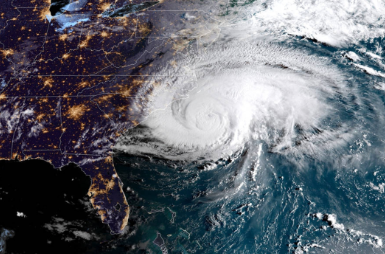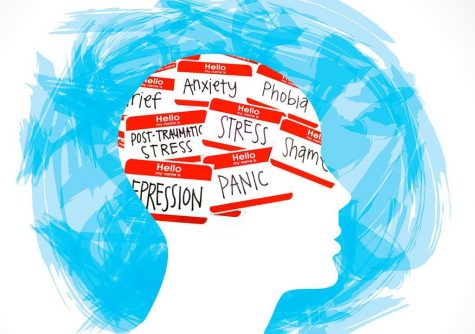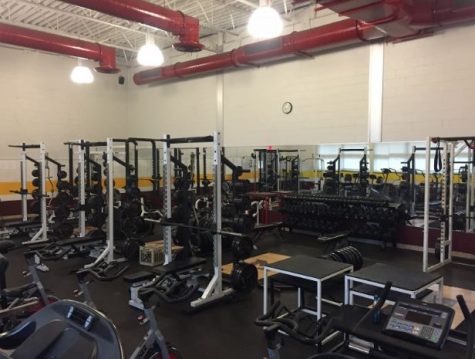Are Hurricanes Getting Worse?

Hurricane Florence (https://insideclimatenews.)
With 48 people dead, $2 billion estimated in damage, and more than 1,500 people in shelters, North Carolina has experienced the most devastating hurricane in decades (Domm). It began in the Atlantic Ocean as a Category 4 hurricane at 14o mph, but reached the North Carolina coast as Category 2 hurricane at 100 mph. (Stieber). Furthermore, it has been declared the second wettest storm at 3 feet of rain, behind Hurricane Harvey (Jones & Maxouris). Hurricane Florence hasn’t been the only catastrophic disaster recently, with Hurricane Harvey, Irma, and Maria devastating Texas, the Caribbean, Florida, and Puerto Rico.
Compared to previous years, scientists and U.S citizens have seen an increase in extreme weather events, with hurricane seasons of the past 10 years being containing a considerable larger than those of the past. In 2013, one year after Superstorm Sandy, NASA published a piece in the Earth Observatory stating that intensity of hurricanes have only increased (“Storms are getting stronger”). The 2017 Hurricane Season proved this to be true, precipitating 17 total storms, 10 of which became hurricanes, including Harvey, Irma, and Maria (Jones & Maxouris). With Florence’s disastrous effects and hurricane’s being predicted to only get worse, many scientists claim that climate change is to blame.
The sole purpose of hurricanes is to cool temperatures of the tropics, as the majority of sunlight is projected onto the equator. Creating an energy imbalance, what are described as “planetary heat engines” grow from heat clusters of weak thunderstorms. Fueled by moisture in the atmosphere and increased ocean and air temperatures, Earth’s rotation causes these storms to spin, producing the pictures of hurricanes we see on weather outlets (Kieu). The 2017 season was particularly bad due to unusually high ocean temperatures, and future seasons are predicted to be worse (Fritz)
Although many scientists point to climate change, there are factors that limit our knowledge when it comes to hurricane’s predictability and intensity. One reason for increased hurricane activity is a change in global air circulation patterns (Kieu). Some have speculated that the intense hurricanes have been a product of complete coincidence. The reality of the matter is that there is a lot we don’t understand. It is difficult to determine climate change’s role in hurricanes between hurricane development, which is measured in a matter of a few weeks, and climate change, which occurs over a large scale of decades (Kieu). All in all, more time is needed to study the correlation between climate change and hurricane intensity, but nearly all scientists point to global warming and rising temperatures at the fault of this. If enough action is not taken soon, the future of our coasts could be at stake; as of right now, hurricanes are to get worse as the years pass.
Sources:
Domm, Patty. “Hurricane Florence damage estimated at $17 billion to $22 billion and could go higher – Moody’s Analytics” CNBC, 17 Sept. 2018. Accessed 27 Sept. 2018.
Fritz, Angela. “Why has the 2017 hurricane season been so bad?” The Washington Post, 23 Sept. 2017. Accessed 27 Sept. 2018.
Jones, Judson and Maxouris, Christina. “Florence was the wettest storm in more than half a century, behind Harvey.” CNN, 26 Sept. 2018. Accessed 27 Sept. 2018
Kieu, Chanh. “Is climate change affecting hurricanes? What we do – and don’t – know” CBS News, 13 Sept. 2017. Accessed 27 Sept. 2018.
Stieber, Zachary. “Wind Speeds Reach 130 Mph, Landfall Forecast For Friday” The Epoch Times, 11 Sept. 2018. Accessed 27 Sept. 2018.










